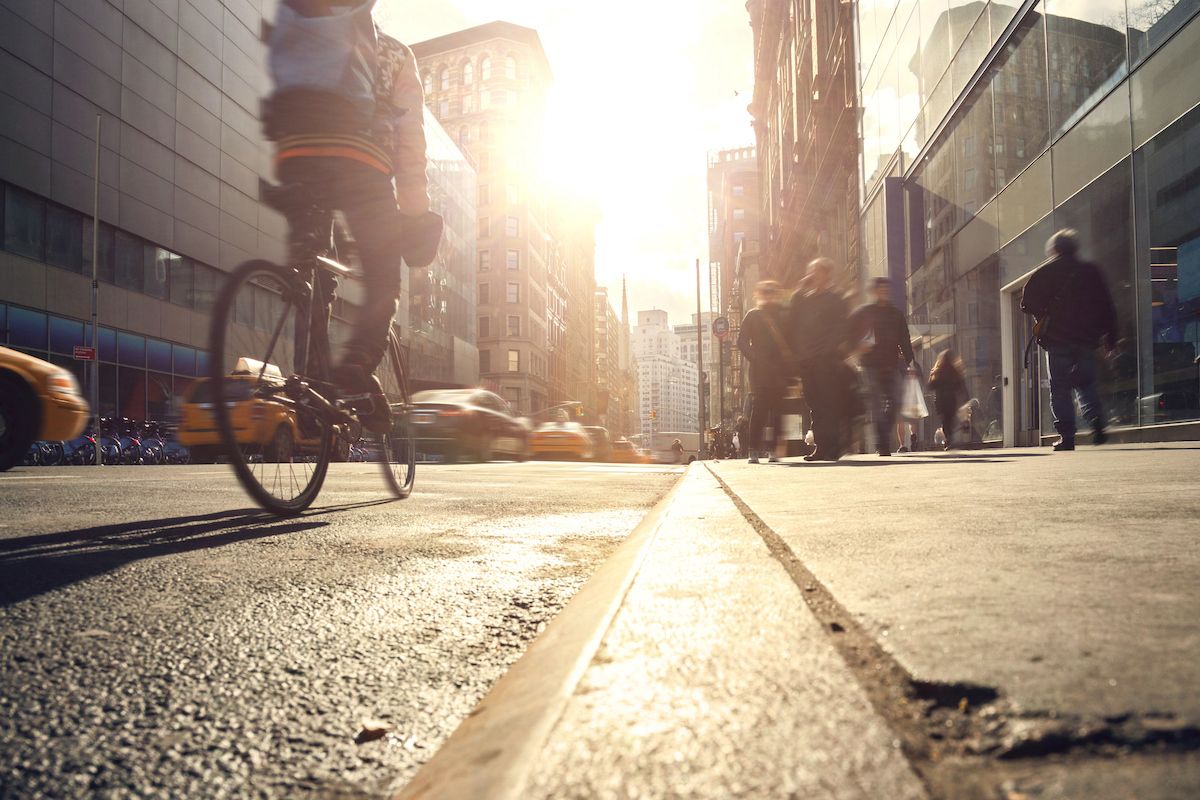
The National Association of City Transportation Officials (NACTO) published a new working paper last month, concluding that bicycle laws across the United States often fail to improve safety while disproportionately punishing Black, Latine/x, low-income and unhoused people on bikes.
NACTO is an association of 91 major North American cities and transit agencies formed to exchange transportation ideas, insights, and practices and cooperatively approach national transportation issues.
Its newest paper, titled “Breaking the Cycle: Reevaluating the Laws that Prevent Safe & Inclusive Biking”, points out that there is little evidence to support the argument that laws surrounding bicycle equipment and behavior increase road user safety. And what’s worse, Minority groups are more often penalized for bicycle related infractions than white people on bikes.
Based on these findings, NACTO calls on policymakers to refocus policies on the wellbeing of all road users, and eliminate laws that unfairly criminalize people on bikes.
The most common of such laws include:
- Laws regulating bike registration, helmet mandates and other bike equipment.
- Laws regulating behavior, including the direction of travel, adherence to stop signs and signage.
- Laws that prohibit bike riders from riding on sidewalks, vehicle lanes, greenways and bridge.
The paper concludes that where bike riders choose to ride is more often than not the result of there not being any other safe alternatives, while the equipment-related penalties have proven no positive impact on safety.
The paper highlights studies that show that Black, Latine/x, and low-income people are policed for violating bike laws at much higher rates than other demographics, often for infractions like biking on the sidewalk, even where there are no safe on-street bike facilities.
In New York City, for example, where Black and Latine/x bikers make up just below half of all people on bikes, they still received 75% of all tickets for bike-related infractions in 2021.
A Los Angeles Times analysis of the more than 44,000 bike stops made between 2017-2021 across L.A. County revealed that 70% of stops involved Latine/x bicyclists, even though only 50% of the County’s population is Latine/x.
“For too long too many in the transportation space have separated conversations about enforcement and racism in this country,” said Tamika Butler, a Los Angeles based Transportation Planning and Policy consultant.
“This working paper urges us all to confront the disproportionate punishment inflicted upon Black and brown communities–punishment many of us in those communities have been harmed by personally and speaking out about for years. NACTO elevating these voices and this research is a positive step forward in rethinking transportation decisions and infrastructure throughout its member cities.”
U.S. bike fatalities also disproportionately impact communities of color. Between 2015 and 2019, the number of deaths of Black people on bikes was 25 percent higher than it was for their White counterparts, while Black pedestrians were twice as likely to be killed while walking than White pedestrians in that period.
NACTO argues that cities and neighborhoods with large Minority populations have been systematically disinvested and tend to lack safe infrastructure.
“America’s over-use of policing in an attempt to correct for systemic safety issues leads to devastating outcomes, especially in Black and Latine/x communities,” said Corinne Kisner, Executive Director of NACTO. “To truly curb the epidemic of traffic deaths in the U.S., we need to focus on what we know works: equitably redesigning streets and public spaces to make them safe and inclusive for everybody who uses them.”
NACTO offers this new working paper as a resource to help policymakers and advocates understand the adverse impacts of biased enforcement of bicycling laws, and includes recommendations for how to refocus policies on the safety and wellbeing of all road users.
The paper also suggests short-term actions for local leaders, including informing bike riders about laws, providing free helmets and other required equipment, and educating police officers about why people might choose to violate a law like biking on the sidewalk to preserve their own safety.
“To achieve our Vision Zero goal of eliminating traffic deaths, we need to be honest and transparent about which strategies actually keep people safe,” said Laura Hardwicke, Vision Zero Project Manager with the City of Orlando. “That means taking a holistic approach and re-designing streets to be safe and accessible for everyone, rather than unfairly punishing individuals struggling to navigate outdated, dangerous and inequitable transportation infrastructure.”
“Breaking the Cycle” is one in a series of working papers being released by NACTO in 2022 as part of an ongoing update to the NACTO Urban Bikeway Design Guide. The working papers cover topics related to equitable planning, engagement, and implementation, and will help inform project delivery concerns and policy considerations that should accompany the design updates in the guide.
You can read all papers on NACTO.org.
"cycle" - Google News
September 08, 2022 at 05:35AM
https://ift.tt/bYB0lnf
Breaking the Cycle: NACTO calls for bicycle law reformation to decriminalize biking in cities - CyclingWeekly
"cycle" - Google News
https://ift.tt/mHdZR6q
https://ift.tt/OBFYdo8
Bagikan Berita Ini














0 Response to "Breaking the Cycle: NACTO calls for bicycle law reformation to decriminalize biking in cities - CyclingWeekly"
Post a Comment